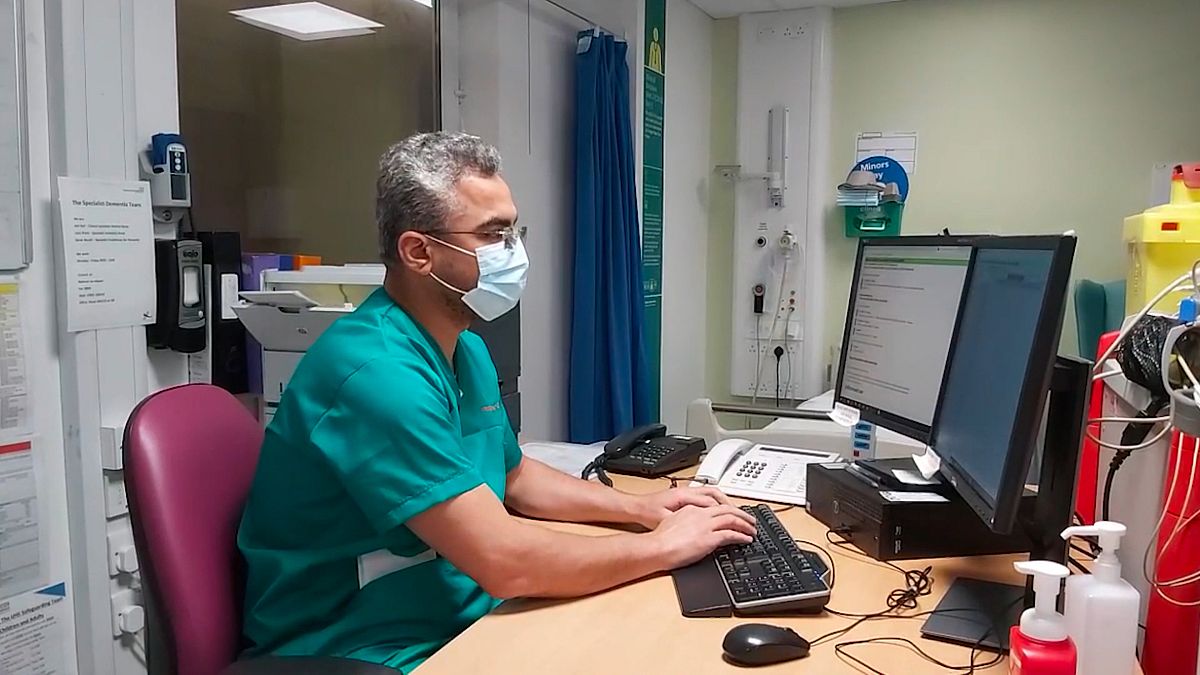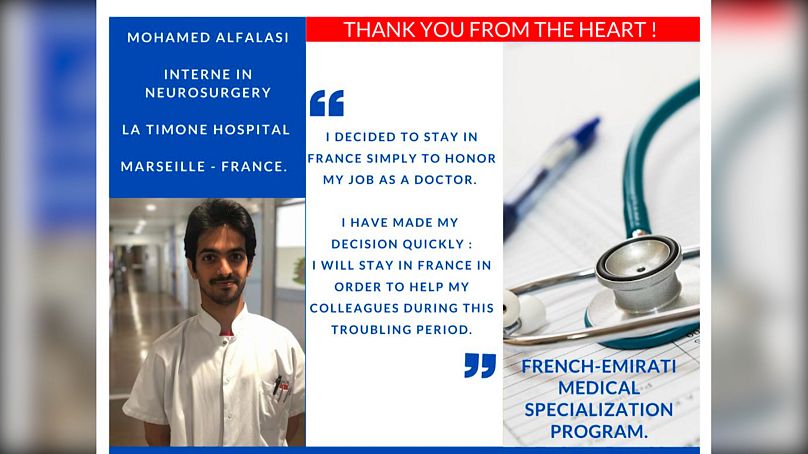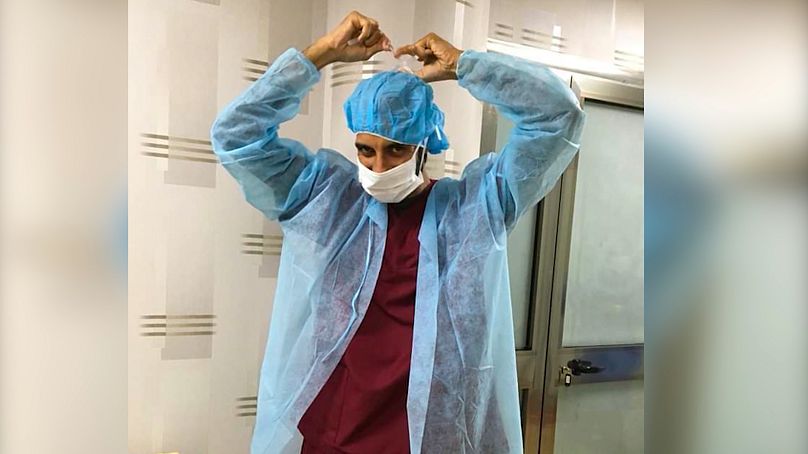Migrant communities from the Middle East and North Africa have been helping fight the COVID-19 pandemic in European nations to offset staffing shortfalls.
Migrant communities from the Middle East and North Africa have been helping fight the COVID-19 pandemic in European nations to offset staffing shortfalls.
Mohammed Al Falasi is one of nine Emirati medical students under scholarship at Hôpital La Timone in Marseille, France.
The group recently turned down repatriation, in favour of helping their medical colleagues.
Seeming to highlight the numbers of foreign workers in French hospitals, a video recently went viral on Twitter.
It showed French President, Emmanuel Macron, asking a medical team at Marseille University Hospital about their countries of origin.
The majority of employees appeared to be from nations other than France, such as Lebanon, Burkina Faso, Mali and Senegal.
Home from home
Refugees are also playing an important role in the global fight against COVID-19.
Dr. Hasham Al-Messhhedani is a former refugee from Iraq who sought asylum in the United Kingdom at the age of three.
Now a critical care specialist at Morriston Hospital in Wales, he believes that enduring hardship can build a strong work ethic.
“They [refugees] are not shy of working hard and making their way,” Dr. Al-Messhhedani told Euronews. “And given the opportunity, they will take it. And we would be silly not to take on people like that.”
Former Syrian refugee, and now foundation fellow at Southampton University Hospital, Dr. Hamad Hawama, practiced medicine during the civil war in his homeland.
He says he feels honoured by the warm welcome he’s received whilst working in England.
“The support that I got, here in the UK, always pushed me to do something and give something back to the community,” says Dr. Hawama. “That’s why I always feel proud I am doing something helpful.”
Medical red tape
Although many medical refugees would like to work within healthcare sectors abroad, converting a medical license in some European countries is long, bureaucratic, and expensive.
Dr. Mohamed Saleh from Libya, was a surgical student who sought asylum in France after the 2014 civil war broke out in his homeland.
In response to the COVID-19 crisis, he registered for the emergency roster in France and was soon dispatched to the French Guiana.
He is now a general associate assistant at Cayenne Hospital.
Nevertheless, Dr. Saleh is still waiting for his license from the French authorities.
Medical requalification exams in the UK, such as PLAB 2, or the Professional and Linguistic Assessments Board, have been cancelled until 2021 due to the global pandemic.
RefuAid is an organisation that helps refugees find employment in the UK.
Given the large number of doctors currently unable to work, its CEO, Anna Jones, told Inspire Middle East that more needed to be done.
“What we are lobbying for, as an alternative, is people to be given the opportunity to work as a medical support worker,” she says. “And to be assessed on the job after six months of work, as a clinical assessment opposed to an exam.”
SEEN ON SOCIAL MEDIA: PREVENTION
Kuwaiti Doctor Yousif is on duty, combatting COVID-19.


